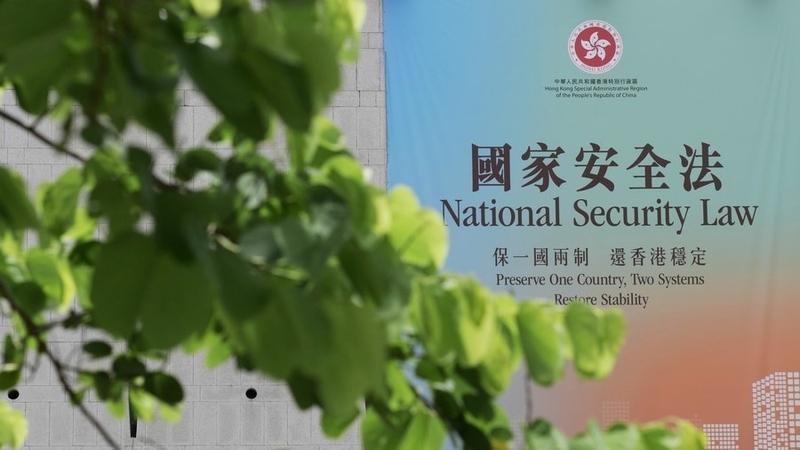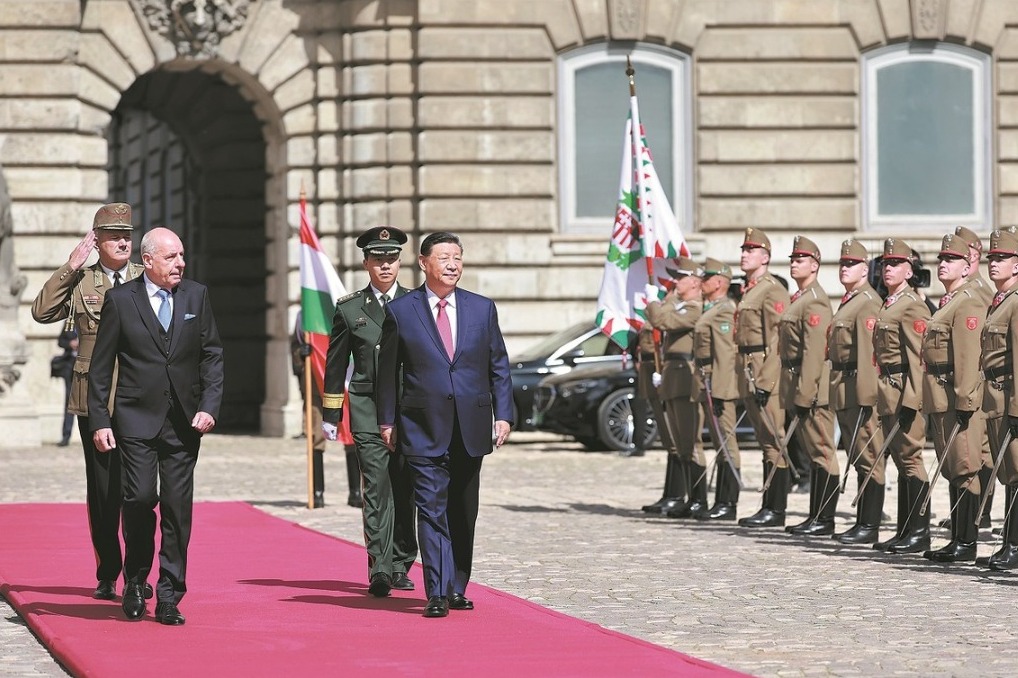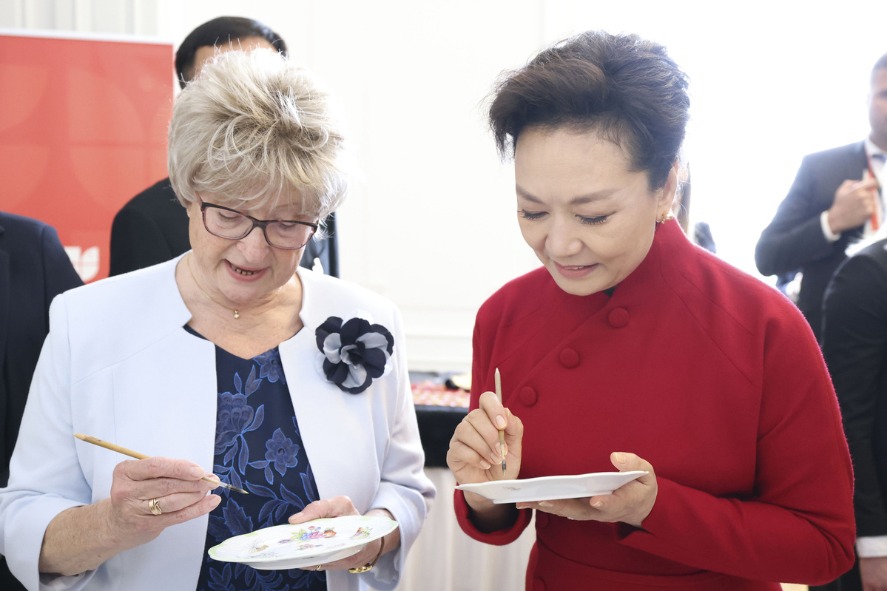HK security law 'indisputable' in restoring order
By LI BINGCUN, KATHY ZHANG and CHEN SHUMAN in Hong Kong | CHINA DAILY | Updated: 2021-07-06 08:23

Legislation serves as strong deterrent for anti-China forces, gains public support
Senior central government and Hong Kong Special Administrative Region officials highlighted on Monday the effect of the National Security Law for Hong Kong, one year into its implementation, noting its "indisputable" effect of safeguarding lasting stability and prosperity in the city.
They pledged that the nation and the city will stand firm on protecting national security and that any attempt by troublemakers to cause disruptions would be in vain and only disgrace the perpetrators.
The remarks were made at a one-day online forum in Hong Kong that brought together prominent political and legal figures to share their insights about the law, which has been in force in the SAR since June 30, 2020.
Chief Executive Carrie Lam Cheng Yuet-ngor, officiating at the opening ceremony, said the security law's effect in stabilizing society is "indisputable". The riots have disappeared and order has been restored. People's lives and property are protected, and they can once again enjoy their legitimate rights and freedoms, Lam said.
"What happened in the past year shows that accusations about the law can hardly stand up to challenge. On the contrary, they only underscore the hypocrisy, bias and double standards of the critics," she said.
The forum, which was organized by the Department of Justice of the HKSAR, invited six high-level officials and leading domestic and international legal scholars to deliver speeches. There were also three panel discussions examining the substantive and procedural aspects of the security law for Hong Kong and presenting a comparative study of the national security laws of other jurisdictions.
In separate speeches, Chen Dong, deputy chief of the Liaison Office of the Central People's Government in the HKSAR, and Liu Guangyuan, commissioner of the Ministry of Foreign Affairs in the HKSAR, stressed that the law has served as a strong deterrent against anti-China forces and has gained ground among the public.
Chris Tang Ping-keung, the newly appointed Hong Kong secretary for security, warned that despite the effectiveness of the law, the city still faces substantial national security risks. The Security Bureau and other law enforcement departments will double down on their efforts for crime prevention and enhance residents' awareness of national security matters, he said.
Zhang Yong, deputy director of the Legislative Affairs Commission of the Standing Committee of the National People's Congress, the nation's top legislature, said the four kinds of offenses covered by the National Security Law are obviously not sufficient to cover all acts and activities in Hong Kong that may endanger national security.
He advised the SAR to complete local legislation on safeguarding national security as soon as possible, as required by Basic Law Article 23.
Bottom line
Zheng Yanxiong, director of the Office for Safeguarding National Security of the Central People's Government in the HKSAR, stressed in his speech that protecting national security is a bottom line and that China will never yield an inch in the course of its national rejuvenation.
He noted that the central government's determination to safeguard national security is unshakable and that any individuals or forces that attempt to cross the line will only disgrace themselves.
Hong Kong Secretary for Justice Cheng Yeuk-wah noted in her speech that the law doesn't affect normal exchanges and interactions between local and foreign institutions and individuals.
However, hostile moves by those who call for sanctions or cooperate with foreign powers to sanction the city and the country do not fall into that category, she stressed.
Henry Litton, a retired judge at the Hong Kong Court of Final Appeal, said it is undeniable that the city was used as a proxy by the West in a wider power fight against China, as China's rise poses a threat to the dominance of the West.
He said that Western accusations against the law were "far from reality" because the turbulent social unrest of 2019 and the failure of the SAR to legislate on Article 23 of the Basic Law, more than 20 years after its return to the motherland, rendered enacting the law absolutely necessary.
























